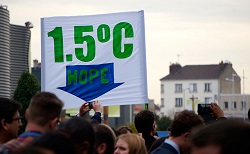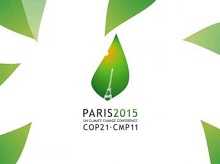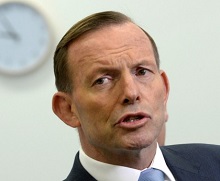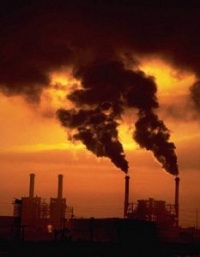The Abbott government’s just-released discussion paper on emissions reductions makes no mention of the global goal to limit warming to 2°C. In fact it appears to aspire to a world where 3.6°C is acceptable.
Comment includes Giles Parkinson at RenewEconomy and Lenore Taylor at The Guardian.
The Government is reviewing it’s post-2020 emissions targets in the context of negotiations for a new global climate agreement to be concluded at the United Nations Framework Convention on Climate Change (UNFCCC) Conference of the Parties in Paris in late 2015 (30 November to 11 December). The paper calls for submissions by 24 April as to what our target should be, how it should be expressed, what the impact on Australia would be, and
“which further policies complementary to the Australian Government’s direct action approach should be considered to achieve Australia’s post-2020 target and why?”
The paper says that Australia’s target should be fair, ambitious, easy to understand and transparent. Also Australia’s target will be, it says, “consistent with continued strong economic growth, jobs growth and development in Australia.”
From The Guardian:
many observers are deeply alarmed that the discussion paper does not mention the 2C goal, but does mention a scenario that could result in almost 4C global warming.
Discussing Australia’s special “national circumstances”, the discussion paper says that “for the foreseeable future, Australia will continue to be a major supplier of crucial energy and raw materials to the rest of the world, especially Asian countries. At present, around 80% of the world’s primary energy needs are met through carbon-based fuels. By 2040, it is estimated that 74% will still be met by carbon-based sources because of growing demand in emerging economies.”
That scenario derives from the IEA world energy outlook 2014 whose “new policies scenario” was based on targets then adopted. The world has now moved on. RenewEconomy gives this table which reflects some of the recent targets announced:
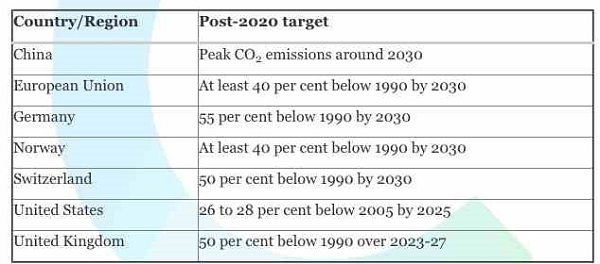
The Conversation has an interactive map to monitor countries’ contributions as they come in.
The discussion paper notes that Australia’s population is growing much faster than comparable countries, and that we have an economy more heavily dependent on coal. This sounds like a set-up for special pleading. The Climate Change Authority thoroughly examined our circumstances last year and argued for a reduction trajectory range of between 40 and 60% below 2000 levels by 2030.
Parkinson advises that the paper was prepared in the PM’s office, not the environment department, or the foreign affairs department which has carriage over international climate talks. Obviously the subject is too important to leave to people who know or care.


